After months in closed beta, Paragon will finally open its doors to the general public next week. Player.One spoke with the game’s creative director, Steve Superville, and lead hero designer, Cameron Winston, in a series of interviews about their plans for Epic Games’ first MOBA. Both had plenty to share including new insights into the first months of Paragon’s life and the many obstacles of tackling a new genre.
“We’re trying to move the game into a direction where we can focus on commitment and giving players clear, meaningful choices, which have pros and cons. Positives and negatives,” Winston said. “Which gives them more room to grow and learn and gives them more strategic choices. Heroes, play styles, roles, all that stuff, we want that to matter. We want it to kind of push the MOBA feel of the game.”
One change that pushes the MOBA feel isa teleportation system similar to those in Dota 2 and League of Legends. In early Paragon builds, heroes receive a significant buff to movement speed when traveling in their lane. Recall allowed players to return to base quickly but made returning to the front lines a slog. Soon, players can teleport in and out of their team’s base, or to any friendly structure, whenever teleport isn’t on cooldown. The new skill will be channeled and interruptible, but only by “hard” crowd control skills like a stun or The Fey’s ultimate. The Paragon team is also considering a new drop pod system that would function similarly to the courier in Dota 2, making it easier for players to buy new items without abandoning a well-pushed lane.
“It’s like ‘Hey, I’m winning my lane and I want to buy something but I can’t,” Winston explained. “If you [decide] ‘I’m going to open up a shop where I’m at’ and what it’ll do is send a drop pod to you. It has like a minute cooldown. And you can buy [items] there. But there’s going to be a risk vs reward element because your drop pods can be attacked by the enemy team. It’s not going to be punishing, like Dota, where you lost your items…but it’ll probably be something like you can’t use this feature for three minutes. All the money you spent you’ll still have. You’ll just have to go back to base to buy your stuff.”
The team doesn’t want huge changes, either. Paragon may not feel like the MOBA the team originally envisioned, but that doesn’t mean Epic is ready to introduce an item store or ditch its emphasis on skill shots. According to Superville, the goal with Paragon is to bridge the gap between action-packed MOBA trailers and the much slower action that transpires in matches.
“What we tried to do was do what Epic’s been good at traditionally,” Superville said. “High-action, high-impact games. And bring that to the MOBA genre.”
Much of the early research focused on ways Paragon could differentiate itself from its competition. Case in point, new MOBA players are frequently intimidated by the massive selection of items that can be purchased for a given character. To make their game more approachable, Epic ditched the item store for a card system that lets less experienced players experiment with play styles in a semi-controlled environment while simultaneously giving more experienced players the freedom to specialize their preferred combatants.
'At the end of the day, MOBAs are Toxic.'
Hero builds aren’t the only barrier standing between interested players and a lifelong love of MOBAs. Toxicity isn’t just the last decent System of a Down album anymore. It’s a word practically synonymous with games like Paragon. The team tries to take toxicity into account, particularly when making core gameplay changes, but it isn’t a problem Epic thinks it can solve. At this point, mitigation is a more realistic goal.
“It’s impossible to fully design it out of the genre, there’s just certain elements that the game demands you reward and design that are going to cause players to be like ‘You stole my kill’ or ‘You picked the wrong hero.’ In any kind of team game, you’re always going to have team-blaming and in-fighting and stuff like that,” Winston said. “What we can do, though, is try to help give players tools to report that kind of behavior and alert us to it. We also take an aggressive stance towards that kind of stuff in our community.”
“We’re trying to make sure people understand…everyone has a bad game. Everyone loses every now and then. And it’s OK to be frustrated but it’s probably not OK to say that thing you just said. That was probably a little bit too much,” he added. “At the end of the day, MOBAs are toxic. Counter-Strike is toxic. Competitive gaming is toxic. And team-based competitive gaming is the most toxic you can get. We’re never going to escape it. All we can do is give players the tools to manage it the best they can.”
Right now, those tools are mostly limited to reporting and muting problematic players. But the toolset will continue to evolve alongside the rest of Paragon. Calls for a low-priority queue, or a similar punishment, are abundant. But introducing that system isn’t as simple as flipping a switch. There’s a great deal of nuance to managing penalties and player behavior.
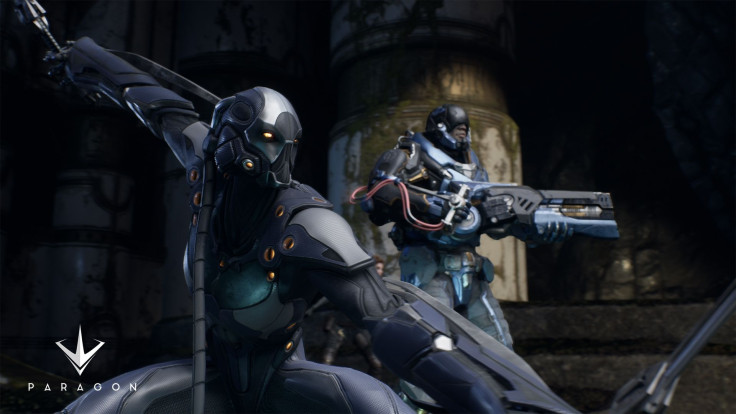
“I’m certain we’re going to have something like [low-priority queue],” Winston said. “As to what that could be, I don’t want to speculate now. But I mean, do we talk about things like that? Absolutely. Is it on our list? Absolutely.”
“There’s a fine line though,” he added. “When you have a large player base you can’t just have some dude reading thousands of reports every day. Because it’s like ‘This guy is intentionally feeding’ No, he was just bad. And you’ve got to go through that. But at the same time, you don’t just want robots doing it because then someone gets banned because their name contains a word that is bad but they were just talking to their friend about where they’re going to eat dinner tonight. And now they’re banned.
“[The system] needs to be user-reviewed, so to speak, but it also needs to be able to scale well enough for a large group of people.”
It may not be the answer players hoped for but Epic is trying. Proof of the company’s commitment to a better gameplay experience arrived in July, when Epic started going after inactive players. For months, Paragon didn’t punish people who abandoned their matches and left players stuck in a lopsided battle. But the studio finally introduced auto-penalization tools and the results are hard to dismiss. Epic says more than 26,000 one-day and 1,000 three-day bans were passed out during the first week. The studio just needed to find a permanent solution that fit the growing Paragon community..
'We don't want any second-class citizens'
Scaleability is a big focus for Epic Games, especially after the game’s PlayStation Plus soft launch brought in exponentially more players than Epic saw prior to July. The explosive growth (Epic didn’t share exact figures) exposed a major shortcoming in the studio’s onboarding process; the kind of revelation Epic only gets after Paragon opens up to a larger audience. An audience that has some friction, too,, particularly between new and experienced players from different platforms.. But Superville says that friction never left Epic second-guessing its decision to combine PC and PS4 matchmaking.
“We decided to do it because of the severe matchmaking challenge,” he said. “It’s not like a traditional shooter, where you can have drop-in/drop-out…you have to have ten players. The team composition matters a whole lot. There’s progression during the match, so you can’t have people drop out and another person join in their place. So, just from the technical hurdle side, doing it cross-platform is great because it keeps our population up.
“On the other side is the actual player experience,” Superville added. “Anytime I’m out on the road, people come up and say, ‘Hey, I love Paragon. I’m playing because my friend was always into MOBAs but I only played on console. And now we can play together.’ Or vice versa.”
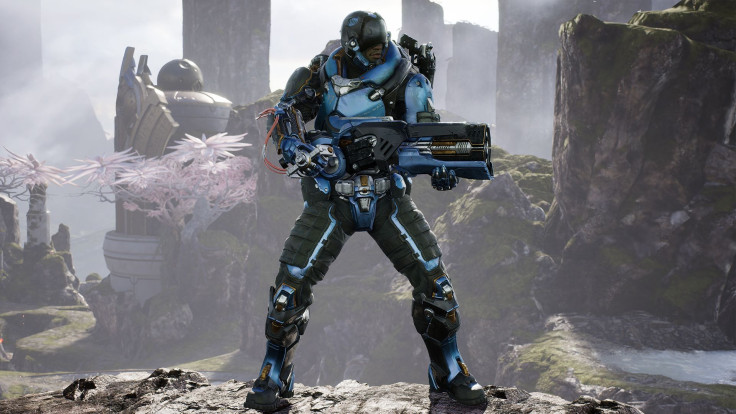
Generally speaking, PS4 players tend to be less familiar with MOBAs than the average PC gamer. But they’re catching up quickly. Fast enough to expose shortcomings in Paragon’s current approach to matchmaking, like a complete lack of support for cross-platform voice chat. But if players think they aren’t happy about the current state of the game, they’re not alone.
“I’m a designer, I’m never happy with anything,” Superville joked. “What we want to do is make sure we maintain, as close as we can, parity between the platforms. We don’t want any second-class citizens. When we launched, what we believed was that players who want to party up on PS4 can do so and can get voice. And players who want to party up on PC can do so and have all the options available to them. TeamSpeak and Discord and Vent and Curse and Mumble and all the things that are out there.”
The solution isn’t an always-on voice channel, either. Anecdotally, Superville says he’s “never experienced” positive communication from an always-on voice chat. And he’s not the only person who would respond in such a manner if we polled the Paragon community. People always like to say they need games designed for adults. Well, many adults have kids at home, kids who should be able to walk in/out of their own living room without being exposed to the worst of online gaming.
“I would love to do voice-over-IP. The challenge we run into is just development and priorities,” Superville expalined. “Because the people who would have been working on that, early on, were working on retooling our matchmaking system to get all the most recent wins. And so it’s really just a priority trade-off. But when we do voice, we will do it in a way that allows cross-platform communication to work.”
'Can we get a giant swamp beast...next to a space marine?'
Compromise is key. That much has been evident since the early days of Paragon’s development, when Epic was still trying to nail down the game’s aesthetic.
“We wanted to give our art team something to latch onto and really start to explore,” Superville told P1. “There are a lot of fantasy lovers in the building. And there are a lot of sci-fi lovers in the building. And our thought was ‘Can we create an environment and characters who have elements of both? Can we get a giant swamp beast to exist right next to a space marine?’
“We went through a couple iterations where we were strongly sci-fi and then had to pull back a bit because it didn’t have enough of the fantasy elements,” he said. “What we ended with, particularly on the environment side, is this beautiful architecture and lush paradise with hints of clockwork technology that made players wonder ‘What is this contraption? What is it here for?’”
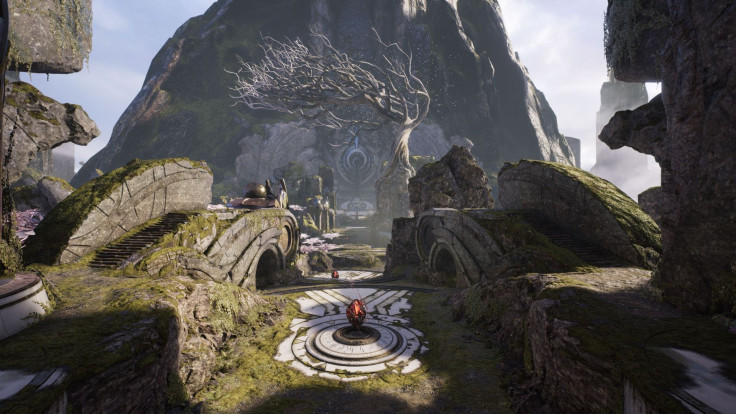
“Once we had the environment, we could start fitting heroes in two ways: One is ‘What heroic fantasy would a player want to play?’” Superville added. “People have different fantasies of power and we wanted to make a hero roster that encompasses all those things. At the same time, we have to fill out a hero roster for design purposes. We need enough damage dealers that players have choices. We need enough melee guys that players have choices. We need tanks. We need casters. We need support.”
That need to fill the roster, but avoid bloating it, is part of what led to Epic’s three-week champion development cycle. The game still has less than two dozen characters on its roster, and sweeping balance changes are still common, but each addition brings something new. Sometimes, the community even finds ways to use new champions Epic didn’t expect. Shortly after the launch of Iggy & Scorch, one team managed to pick up several wins using the tandem as a tanking caster, instead of controlling lanes like Epic intended.
“It showed up in some of the community tournaments, like Agora’s Rising, and was really effective. Especially when you pair it with a character like Decker,“ Superville said. “People didn’t expect it, so they didn’t bring the item [to hard-counter the strategy], and they were able to win some matches using that. Now, when we see people play in tournaments, if someone selects Iggy the other [team] selects a deck with some sort of health-mitigation item in it. ”
Unfortunately, the expedited development cycle doesn’t leave Epic with much time to explore the relationships between members of the Paragon roster or backstories of the characters. The development team occasionally reveals small bits of information about the various interpersonal relationships during its weekly Twitch stream, but any plans to expand the lore have mostly been set aside. Superville said that won’t always be the case.
“We are learning how to do a game as a live service,” Superville said. “It’s just the nature of the industry, and [game development], that you have to prioritize. So what we decided to do was to halfway prioritize the actual competitive game modes, knowing that if players engaged with that then they’d start to care about the lore. And then we have a small group that is continuing to work on lore. But what we want to do is do something that is hopefully (hopefully) interesting to players.
“Previously in our titles, we basically said ‘Hey, this is the universe. These are the characters. This is who they are. This is how they relate to each other. Enjoy.’ When you do that, and you play the same levels over and over again, and you play the same characters over and over again, we thought that you might lose some of the mystery.
“We wanted to start taking the approach where we inject some mystery,” he added. “It’s much more like Lost …where you’re engaged with what you’re seeing and you’re engaged with what you’re doing. But the game and the lore presents you with a bunch of questions.”
'The community is going to have a life of its own'
Superville says the community is already constructing elaborate fictions about the origins of Agora, the clockwork technology scattered across the map and even the game’s teleportation system. Engagement doesn’t stop there, either. Players are building teams,recruiting new players and organizing tournaments through the forums, too. Epic knows this sort of engagement is absolutely vital to maintaining Paragon’s longevity on the competitive scene.
“Any competitive game would long to be an esport but I believe that you can’t just show up and say ‘We’re an esport!’” Winston said. “The community is ultimately what decides if you’re an esport or not. And that’s something that evolves.”
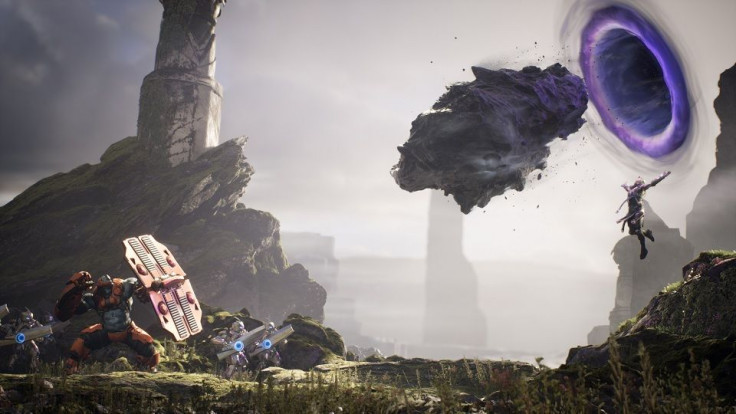
“[Look at] our Agora’s Rising tournament, if that starts taking off and all of a sudden there’s a lot of people that want to play it, and now it gets more competitive because there’s only 20 slots or however many they want to do…now it’s hard to get a slot, so you have to work harder,” he added. “That’s how you get stuff like the original Dota 2 tournament Na’Vi [line-up]. That wasn’t super organized. They were five guys that played Dota together…they were organized before anyone was organized and they dominated everything in the beginning of the game.”
“And then you started to see, over time, they became less good because newer teams were seeing ‘Oh, this is the thing I should start caring about’ and then they started putting their time into it. So the esport grows organically,” Winston said. “We want to support it, the same way Valve supports their esports and Riot supports theirs, but it’s more than just saying ‘We’re an esport now.’ You have to have that interaction with the community.”
Epic has become known for its community relations skills.. From the first iteration of Unreal Tournament, to the studio’s stint as shepherd of the Gears of War franchise all the way through its current work on Paragon, Epic has maintained clear lines of communication with fans. That’s why the studio has been supportive of sites like Agora.gg, and other third-party tools, that provide more information on the current build of Paragon.
“It causes some heartache, sometimes, as people think they are a part of us somehow,” Superville said. “But we recognized early on, when we were deciding whether we wanted to take on the endeavor of making Paragon or not, that the community is going to have a life of its own. And that’s exactly what we want. So we want sites to pop up. We want sites that show the best builds. We want sites that surface some stats. Because, really, the whole purpose of this game is to have a community that feeds itself.”
After the first few Agora’s Rising tournaments, which many Paragon developers watched enthusiastically, Epic reached out to tournament organizers to see what kinds of changes and updates the AR broadcast team needed. As a result, Paragon’s Instant Replay system continues to improve.
“We want a ground up, grassroots community. Because that’s the only way competitive games will really succeed,” Superville said. “If you can’t get that, it doesn’t matter how much money you throw at it from the publishing side. It’s not going to have legs. It’s kind of the slower, I guess, more conservative, but we also feel more honest and genuine, way to build a competitive scene.”
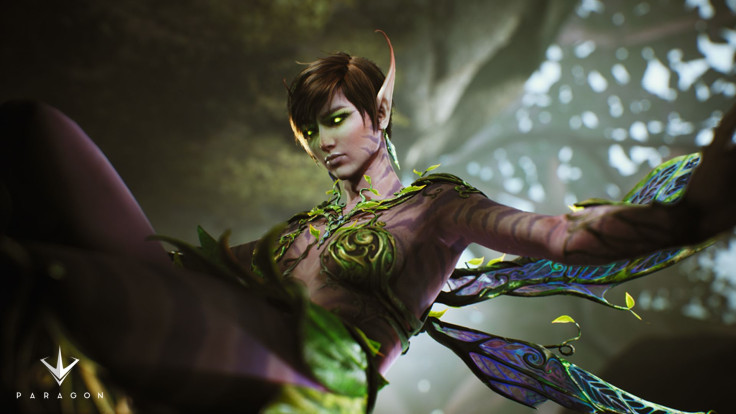
Esports aren’t Epic’s only focus. The studio’s first MOBA offers more depth than initially meets the eye but the game was built around a casual-friendly card system for a reason. Epic knows there are millions of adults playing video games in 2016, many of whom are still searching for a multiplayer game that acknowledges the realities of adult life without penalization. A matchmaking queue that lets players drop in or out of a match as needed, without explanation, is an increasingly common request on the Paragon forums. But Epic has to balance those requests against a need to maintain the current matchmaking pool, balance the roster and improve existing mechanics.
“We are excited to do more game modes and stuff like that,” Superville told P1. “Not just the ‘fits the demands of adult life’ [requests]. It’s [about] having flavor and variation. Right now we just have our hands full. MOBAs are hard to make and we are learning how to do it with the help of our players. We have enough to focus on with just the one game mode.”
Keeping everyone in the same matchmaking pool makes it easier to judge the impact of gameplay changes, like the Draft mode introduced last month. Previously, Paragon players picked their hero before entering the queue, with servers assembling teams based on picks, player proximity and skill level. The time it took to be placed on a team shot up anytime a new character was added to the roster; something had to change. So the team switched things up, assigning players to teams before letting them choose their hero. Epic also ditched a setting that barred two pre-made groups from being placed on the same team. Matchmaking times dropped overnight (down nearly three minutes since June) and team composition has improved drastically.
Unfortunately, there’s still no good answer for one of the Paragon community’s most frequent questions: the whereabouts of ranked matchmaking. With Epic still cranking out new champions every three weeks, some fans don’t understand why the studio can’t offer a timeline for the debut of competitive play. But hero count isn’t the only deciding factor.
“We’re still working on it,” Superville said. “What we’re trying to figure out is where we get to the spot where there’s enough variation. It’s really not just number of heroes. [We need] enough variation within particular roles. So, if we had, for example, 10 rangers but only one support, that’s not a viable setup for Ranked. So we need enough variation. Not just different heroes but different classes. And that’s what we’re driving toward.”
Be sure to check back with Player.One and follow Scott on Twitter for more Paragon coverage throughout 2016 and however long Epic Games supports Paragon in the years ahead.


















